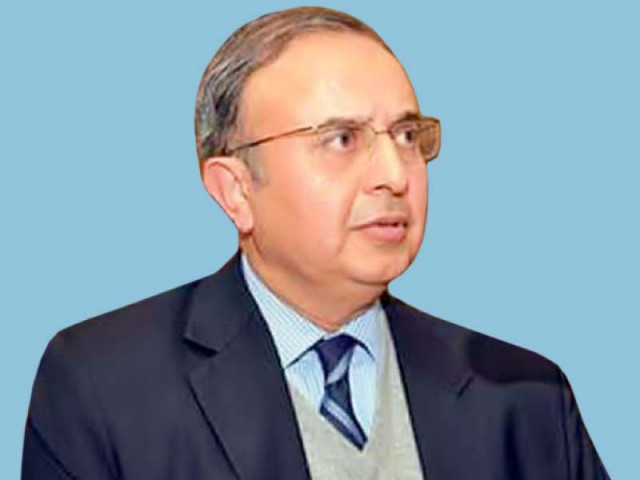History never forgives: Justice Shah
History never forgives: Justice Shah

Supreme Court senior puisne judge Justice Mansoor Ali Shah has expressed his regret at sitting on special or larger benches formed by the committee constituted after amendments to the Supreme Court Practice and Procedure Act 2023 through a presidential ordinance last month.
In a letter addressed to the committee, led by Chief Justice of Pakistan Qazi Faez Isa, Justice Shah highlighted his concerns over the formation of the benches, pointing out the public's perception of judicial actions.
"We often forget, when in power, that people of this country are watching our actions, and that history never forgives," Justice Shah remarked in his letter.
Justice Shah, who was superseded for the position of the next CJP, penned the letter after recusing himself from a special bench set to review a matter.
He cited the reasons recorded in his previous letter, dated September 23, 2024, to the committee's secretary, which, he noted, were not included in the minutes of the committee's 19th meeting.
"For the reasons recorded in my letter dated 23 September 2024 sent to the Secretary of the Committee constituted under the Supreme Court (Practice and Procedure) Act 2023 (the contents of which, in spite of my request, were not recorded in the minutes of the 19th Meeting of the Committee), I regret that I cannot be a part of the subject Bench," stated the letter.
Justice Shah further clarified that until the constitutional validity of the ordinance's promulgation and the amendments therein are determined by a full court bench, or until the judges of the top court resolve to act upon the amendments in a full court meeting, he will refrain from participating in special benches formed by the new committee.
He said he would only attend sittings of the regular benches to hear the cases of ordinary litigants in the larger public interest.
He also indicated that he would not rejoin these benches unless the earlier committee, which comprised the CJP and the two senior-most judges, is restored.
He quoted Sir Thomas More from A Man for All Seasons: "I think that when statesmen forsake their own private conscience for the sake of their public duties, they lead their country by a short route to chaos."
There has been notable unrest within the legal community regarding the parliamentary committee's decision to supersede Justice Shah, who is known for his efforts to reform the justice sector.
Sources indicate that Justice Yahya Afridi, the chief justice designate, has held meetings with both Justice Shah and Justice Munib Akhtar. Justice Shah and Justice Afridi, it is noted, had once been law firm partners.
'Beginning of assault on the judiciary'
Commenting on the developments, former additional attorney general Tariq Mahmood Khokhar attributed Justice Shah's ouster to what he described as "self-created delusions" on the part of the Establishment.
"Self-created delusions were instrumental in Justice Shah's ouster. He was distrusted and feared without any corroborative evidence," said Khokhar, who also underscored the role of the established order in the matter.
"Others collaborated for varying reasons: his impartiality, independence, brilliance and so forth. Pique and revenge were also at play."
On the appointment of Justice Yahya Afridi as the next CJP, Khokhar remarked that Justice Afridi is not known for pliancy and often disagrees with both majority and minority views. According to Khokhar, Justice Afridi represents a stark contrast to his predecessor.
"There will be no malignant impulses, no vindictiveness, no collaboration with extraneous forces, no attempt to undermine the rule of law, democracy, or the constitution. Ironically, those who were instrumental in Justice Afridi's appointment have unwittingly set the stage for a better, fairer, and purer justice system. They will be bitterly disappointed at not seeing a repetition of the Qazi era," remarked the former AAGP.
He further added that the "established order," having convinced itself that nothing justifies the events of May 9 but that May 9 justifies everything, has now embarked upon radical changes.
According to Khokhar, this could mark the beginning of an assault on the judiciary.
Meanwhile, a full-court reference will be held at the Supreme Court building on Friday at 10:30 am in honor of outgoing Chief Justice of Pakistan, Qazi Faez Isa.
Both Justice Isa and the incoming Chief Justice of Pakistan, Justice Yahya Khan Afridi, are expected to address the reference. However, Supreme Court senior puisne judge Syed Mansoor Ali Shah will neither attend the full-court reference nor the swearing-in ceremony of Justice Afridi.
On October 21, the ruling coalition successfully passed the 26th Constitutional Amendment through parliament.
The amendment curtailed the powers of the superior judiciary, particularly removing the Supreme Court's authority to take suo motu notice under Article 184(3) of the Constitution. The amendment also changed the mechanism for appointing the Chief Justice of Pakistan.
Previously, the senior puisne judge of the Supreme Court was automatically elevated to the position of CJP. However, under the new amendment, a parliamentary committee is now empowered to select one of three nominees submitted by the outgoing CJP.
Before the amendment, Justice Shah was next in line to become the CJP. But after the amendment, the committee convened swiftly and selected a relatively junior judge, Justice Yahya Afridi, for the role.
According to sources, Justice Shah is leaving for Umrah with his family today and will neither attend the full-court reference nor the swearing-in ceremony of Justice Afridi.
Justice Yahya Afridi has been appointed as the new chief justice of Pakistan (CJP), following a presidential assent and a formal notification by the Ministry of Law on Wednesday.
His appointment, effective October 26, 2024, will be for a term of three years.
The ministry's notification came a day after the Special Parliamentary Committee, which had the ball in its court to nominate the next chief justice from the top three senior judges, picked Justice Afridi with a two-thirds majority, leaving behind Justices Mansoor Ali Shah and Munib Akhtar.
The decision, the first in history to bypass senior judges, was reached by an 8-1 vote, capping weeks of speculation.
President Asif Ali Zardari approved Justice Afridi's appointment upon the advice of Prime Minister Shehbaz Sharif, following the constitutional provisions outlined in articles 175A(3), 177, and 179.



















COMMENTS
Comments are moderated and generally will be posted if they are on-topic and not abusive.
For more information, please see our Comments FAQ